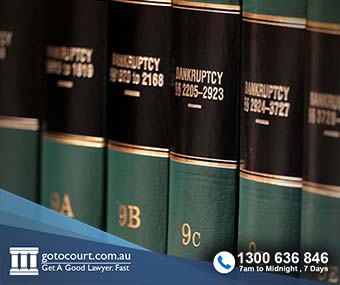Landlord Rights and Obligations (Qld)
Residential tenancies include leases for properties including houses, units, rooms in houses or units, houseboats and caravans. In a residential tenancy agreement, the landlord is the owner or manager of the property while the tenant is the person or persons permitted to live in the property. This page deals with landlord rights and obligations in residential tenancies in Queensland.
Legislation
Both tenant and landlord rights and obligations in Queensland are governed by the Residential Tenancies and Rooming Accommodation Act 2008. Residential tenancies law is overseen and administered by the Residential Tenancies Authority (RTA).
Starting a tenancy
Landlords are required to provide a written tenancy agreement to the tenant, prior to the tenant moving into the property. The landlord cannot charge the tenant any fees in relation to the preparation of the agreement.
The landlord should also carry out an inspection and complete a condition report prior to a tenant moving into the property. The condition report will act as evidence of the condition of property at the end of the tenancy, so it is important that it is completed and given to the tenant.
Bond
The landlord has a right to take a damage bond prior to the tenant moving into the property. However, the landlord is obligated to lodge the bond with the RTA within 10 days of receipt. The RTA will then hold the bond for the duration of the tenancy.
Landlord rights and obligations about rent
As the property owner, the landlord has a right to receive the rent on time.
Where the tenant fails to pay the rent within seven days of the due date, the landlord can issue a ‘notice to remedy breach’. If the tenant fails to pay the arrears within seven days of the notice, a ‘notice to leave’ can then be issued requiring the tenant to vacate the property within seven days of this second notice.
If the tenant ignores the ‘notice to leave’, the landlord must make an application to Queensland Civil and Administrative Tribunal (QCAT) for an order to evict the tenants from the property.
Safety
Residential rental properties must be compliant with current Queensland safety laws. If the property has a pool, it is the landlord’s responsibility to ensure the pool fences comply with the current pool safety laws.
Queensland laws are strict with regard to smoke alarm installation and maintenance. The landlord must ensure the property is fitted with the correct type of smoke alarm and is responsible for testing and replacing batteries within 30 days before a new tenancy starts or an existing tenancy is renewed.
Because landlord rights and obligations in Queensland are governed by law, any failure to comply with safety requirements could result in legal consequences.
Utilities
The landlord may pass on the water and electricity usage costs where:
- the tenancy agreement states the tenant will pay the utility costs
- it is noted in the tenancy agreement how the costs are to be calculated
- the property is individually metered, and
- the property is water efficient.
The landlord cannot pass on any sewerage or fixed access charges.
Pests
Queensland residential tenancy laws do not specify who is responsible for pest removal in a property. The landlord has a duty to keep the property maintained, however, the tenant may be responsible for the removal of the pests where they have caused the pest infestation.
The RTA recommends both parties discuss the problem and try to come to a fair agreement when pests are found in the property.
Selling the property
If the landlord decides to sell the property, they must provide a ‘notice of intention to sell the premises’ to the tenant. This notice informs the tenant of who the selling agent is and how the property will be marketed. The property can only be sold by open house or on-site auction where the tenant has agreed in writing. Any photos of the property used for marketing purposes cannot show the tenants’ belongings or identify them.
Where the tenant has a fixed tenancy agreement, the landlord cannot end the tenancy early to sell the property. The landlord should notify prospective buyers that the property is currently leased.
Ending the tenancy
At the end of the tenancy, the tenant is required to leave the property in the same condition as noted on the entry report, allowing for reasonable wear and tear.
Once the tenant has left the property, the landlord is obligated to complete a copy of the exit report noting any damage to the property and provide a final copy to the tenant.
Where the property has been left unclean or damaged when compared with the condition of the property at the beginning of the tenancy, the landlord can apply to retain part of the deposit to cover the costs of repair or cleaning.
The landlord requires the signature of the tenant to have the bond released. If the tenant does not agree with the landlord’s deductions, the landlord can lodge the release form without the tenant’s signature and the RTA will review the matter.
If you require legal advice or representation in any legal matter, please contact Go To Court Lawyers.







